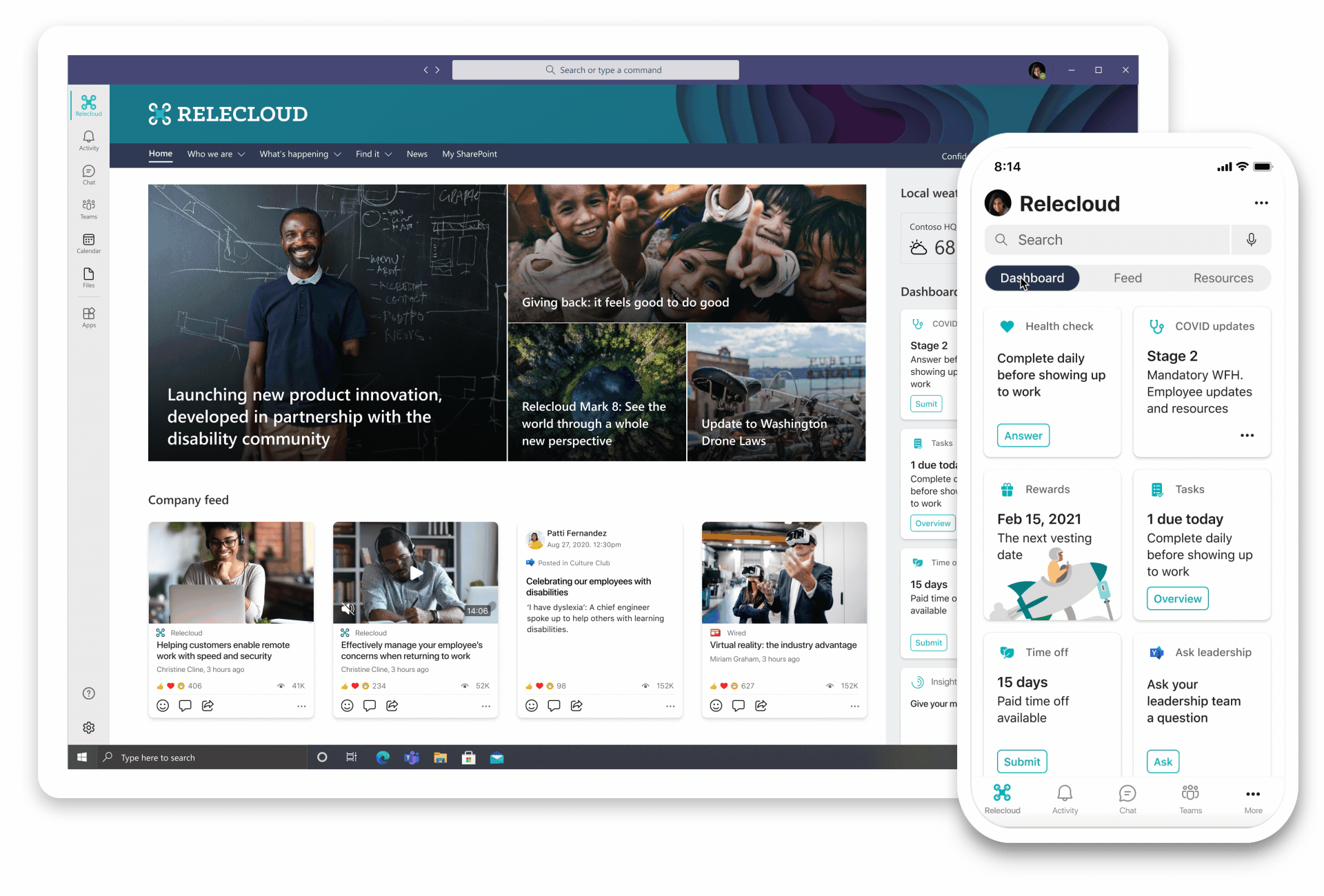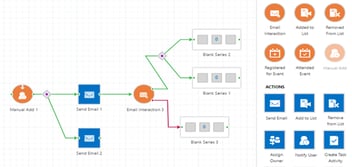Goodbye Cortana, Hello Viva and Copilot: Microsoft's Enterprise AI-Drive Continues
In a move that marks the end of an era, Microsoft has recently announced its decision to discontinue support for Cortana, its once-promising virtual assistant. Cortana, named after an artificial intelligence character from the popular video game franchise “Halo,” was initially introduced as a rival to Apple’s Siri and Amazon’s Alexa. However, despite its potential, Cortana failed to gain significant traction in the virtual assistant market, leading Microsoft to make the tough call to terminate its support and focus on where more progress is being made.
End of Standalone App
One of the key changes resulting from Microsoft’s decision is the discontinuation of Cortana as a standalone app on Windows. While it will no longer be available as a separate entity, elements of Cortana’s functionality will be integrated into other Microsoft products and services. For instance, Cortana’s voice assistant capabilities will be integrated into Microsoft 365, allowing users to interact with the assistant through applications like Outlook, Teams, and more.
Shifting Focus to Enterprise
While Cortana’s departure from the consumer market may disappoint some, Microsoft is not abandoning the virtual assistant concept altogether. Instead, the company is refocusing Cortana’s efforts towards enterprise applications. By targeting the business sector, Microsoft hopes to leverage Cortana’s natural language processing and cognitive services to enhance organisational productivity and efficiency. This strategic shift aligns with Microsoft’s broader vision of empowering businesses with intelligent tools and technologies.
The Future of Microsoft’s Virtual Assistants
Despite the setbacks experienced by Cortana, Microsoft remains committed to providing virtual assistant capabilities to its users. In addition to integrating Cortana into Microsoft 365, the company has been actively developing a new conversational AI assistant called “Microsoft Viva.” Designed specifically for the modern digital workplace, Microsoft Viva aims to streamline productivity, communication, and collaboration across organisations.

Microsoft Viva encompasses various modules, including Connections, Insights, Topics, and Learning. These modules leverage Microsoft’s expertise in artificial intelligence, machine learning, and natural language processing to deliver users personalised and contextually relevant information.
- Connections: This module simplifies employee engagement and communication by providing a centralised platform for news, policies, and resources, fostering community and collaboration.
- Insights: Leveraging artificial intelligence and machine learning, Insights delivers personalised and actionable analytics, enabling employees to make informed decisions and drive productivity.
- Topics: Topics helps organisations harness collective knowledge by automatically organising content and expertise around specific subjects, making it easier for employees to access relevant information.
- Learning: The Learning module offers personalised training and upskilling opportunities, enabling employees to acquire new skills and enhance their professional development within the workplace.
By leveraging Microsoft’s expertise in AI, machine learning, and natural language processing, Microsoft Viva aims to redefine the virtual assistant experience within the enterprise environment, unlocking new productivity levels, knowledge sharing, and employee engagement.
See more about Microsoft Viva during Crimson's recent Ask the Experts webinar (from 4:40):
AI-powered assistance built into Microsoft Dynamics 365
The recent launch of the new Microsoft Dynamics 365 Copilot provides additional interactive, AI-powered assistance across business functions.
Customer relationship management (CRM) systems have long been mission-critical customer and business data sources; however, they frequently require burdensome tasks like manual data entry, content generation and notetaking. Dynamics 365 Copilot takes advantage of recent advancements in generative AI to automate these tedious tasks and unlock the full creativity of the workforce. Dynamics 365 Copilot puts CRM to work for business users to accelerate their pace of innovation and improve business outcomes in every line of business.
Copilot in Microsoft Dynamics 365 Sales and Viva Sales helps sellers dramatically reduce their time on clerical tasks. AI helps write email responses to customers and can even create an email summary of a Teams meeting in Outlook. The meeting summary pulls details from the seller’s CRM, such as product and pricing information and insights from the recorded Teams call. With sellers spending as much as 66% of their day checking and responding to emails, this presents a significant business upside to give the seller more time with their customers.
Copilot in Dynamics 365 Customer Service empowers agents to deliver exceptional customer care. Dynamics 365 Copilot drafts contextual answers to queries in both chat and email, providing an interactive chat experience over knowledge bases and case history, so this AI-powered expertise is always available to answer questions. Microsoft’s also making it easier for customer service departments to build virtual agents in minutes with conversation boosters in Power Virtual Agents, which harnesses the power of Azure OpenAI Service and Bing to provide answers from company websites and your chosen internal knowledge bases.
Copilot in Dynamics 365 Customer Insights and Dynamics 365 Marketing empowers marketers to simplify their workflow in data exploration, audience segmentation and content creation. With Copilot in Dynamics 365 Customer Insights, marketers can curate highly personalised and targeted customer segments by having a dialogue with their customer data platform using natural language. Marketers can receive suggestions about additional segments that may not have been previously considered. This new capability can handle complex calculations and match customers that fit a select profile.
Using Copilot in Dynamics 365 Marketing, marketers can describe their customer segment in their own words to create a target segment with the query assist feature. Marketers can also use Dynamics 365 Copilot to effortlessly get inspiration for fresh email campaign content based on a simple request. Copilot makes suggestions based on key topics entered by the marketer, the organisation’s existing marketing emails, and from various internet sources to increase the relevance of generated ideas.
The end of Cortana’s standalone app marks the closure of a chapter for Microsoft’s virtual assistant ambitions in the consumer market. While Cortana failed to gain widespread popularity, Microsoft remains committed to providing virtual assistant capabilities through other avenues.
As technology continues to evolve, the virtual assistant landscape will undoubtedly witness further transformations, and Microsoft aims to remain at the forefront of this evolution, delivering intelligent and efficient solutions for both consumers and enterprises.
The Crimson team continually explore innovative ways customers can apply Microsoft technology, particularly in the housing and higher education sectors. Book your free discovery call with Crimson today to discuss the possibilities of Viva and Copilot, and unlock Microsoft proof of concept funding.
Read On

Maximise Microsoft’s Accessibility Features in Teams and Microsoft 365
Six months ago, we discussed Microsoft’s Accessibility training which aims to improve the overall...-Jul-20-2022-03-02-14-07-PM.png?width=352&name=Hubspot%20Blog%20Banner%20(1)-Jul-20-2022-03-02-14-07-PM.png)
What is Microsoft Power Automate? And what can it do?
Microsoft Power Automate is a tool that allows users to automate tasks. It can be used to automate...
